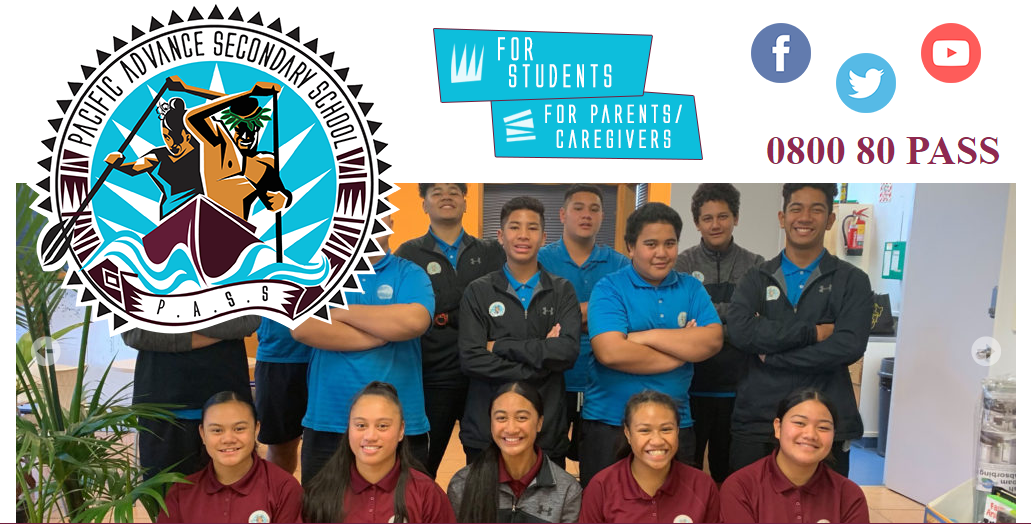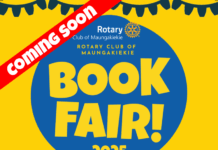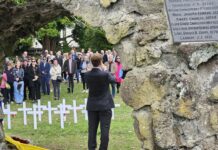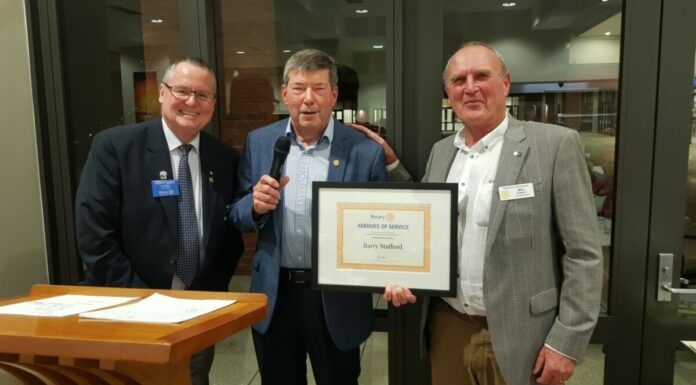The Experience with the Rotary Enrichment Programme (“REP”) at the Pacific Advance Secondary School (“PASS”) at 46 Atkinson Avenue, Otahuhu, Auckland (Writer: Barry Stratford – Member, Rotary Club of Onehunga One Tree Hill)
Remember Sir Robert Jones? Bob Jones was one of the country’s best known commercial property developers in the 1980s and 1990s. He was a boy from a State House in the Lower Hutt Valley, Wellington and became the founder, financier and leader of the New Zealand Party, which led to the demise of Sir Robert Muldoon, as Prime Minister, in the 1984 General Election. Bob Jones was also well known as a boxing aficionado and a man with strong opinions, which he could articulate well, if not better than most other figures in our political and cultural landscape of the time. He was the popular go-to person for journalists after a ready quip, or their next headline. Bob was largely self-educated and a voracious reader, who from about his mid-forties wrote several books of both fiction and non-fiction.
Less well known is his younger brother Lloyd Jones with considerably more talent than Bob as a writer and novelist. His 2006 novel Mister Pip is a wonderfully imagined story, set in a South Pacific Island, where a civil war flares around the local population like bad weather. The main protagonist is Mr Watts ,a somewhat hapless English teacher who in desperation finds, in the local school’s almost empty library, a tattered copy of Charles Dickens’ mid-Victorian novel, Great Expectations. It is the shared reading aloud of passages in the book which set the story alight. Somehow from an adolescent, yet eager audience, for whom English is clearly a second a language, the power of the written and spoken word strikes a chord, especially with a thirteen year old young woman.
The novel was the winner of the 2006 Commonwealth Prize for Literature and short listed for the 2007 Booker Prize. Seven years later in 2013 it was made into an entertaining and moving film with the multi-talented Hugh Laurie as Mr Watts. Some of the classroom scenes were filmed in Glendowie College, Auckland. What the novel and the film show most graphically, is the importance of reading in unlocking for the younger reader, the boundless opportunities and experiences which life can offer.
To paraphrase a perceptive review from the Guardian’s film reviewer, the novel and the film have at their heart, just as the REP programme does at PASS,
- a belief in the power of literacy to “set minds free”,
- that the classroom is a place of light, and
- that children can discover “ a bigger piece of the world they can enter” without devices, other than perhaps, a dictionary.
At PASS there is the added possibility that you may be fortunate to encounter, the whole school or a school group, singing unaccompanied. It is a wonderful, emotional and moving experience and shows that the students there have a musical gene. It makes you realise that the first musical instrument must have been the human voice.
What we do
With these comments in mind just what is it that we do at PASS when a student appears? A couple of points first about the material we work with and the students themselves.
Unlike in Mister Pip, the material we have is not a series of passages from a work of fiction from 170 years ago set in mid Victorian England. It comprises a set of carefully targeted exercises in fiction and non-fiction in short texts of 12 levels of graduated difficulty. The product quality is modern with good colour printing, an easy to understand layout, accompanying pictorials complementing the text and separate colour coded tabs with the answers to the 23 questions, the student completes for each exercise. The content is intended for the target audience of students of 13 -14 years. The material probably predates the most recent decade of the digital age but in many respects is often pleasingly relevant to the readers’ personal experiences in life, young or old.
The students, in their early teens, have arrived at secondary school needing to have their reading and comprehension skills improved, so that they can use the rest of their time at school to unlock their potential and give themselves the best opportunity to fulfil their own plans. Often they come from backgrounds and families with lots of challenges. At the same time their families are very supportive across the age range of all family members.
We listen and read
For each student we set out to establish a rapport with them so that they are relaxed with us and can concentrate on what we want to achieve with them in each 45 minutes session. Without being intrusive we ask them a little about their whanau and tell them something about ourselves and our families. Then we turn to the business in hand.
First we listen to them read the text and take turns to read to them. We concentrate on the speed with which they read, their enunciation, word recognition and try and assess how well they are engaging with the material and relating to it. In reading to them we attempt to read with fluency and encourage their interest in the subject matter, remembering that this time is a one on one contact with only them and us involved; a precious moment of influence.
After we have finished reading we ask them for their comments about what we have just read. Often if there is no immediate response we set out to encourage them to talk about the content of what we have read in a personal way. Did they enjoy it or was it really boring? Have they had similar experiences such as owning a dog or bullying in the playground or swimming with sharks? Frequently their initial short responses are very illuminating and can lead to longer discussions. We try and jot down in note form these responses because later we need to come back to them to help our student summarise the text.
We work
Then we go through the 23 questions, which are about the text, with the majority in a multi choice format. There are some gentle introductions to important grammar rules, the meaning of certain words, the function of particular types of words in the text and testing how well they have understood key points in the text. It is interesting to measure one’s own responses against the students and note when they are quicker than you.
It is important to go to the answer tab and mark the student’s work as soon as you have finished. They are very interested in finding out how they have done and get satisfaction for a clean sheet. This is human nature and applies to all of us as well. It is also an opportunity to encourage them and share in their success.
We observe
And all the time we notice how they write. Are they neat? Do they write quickly or slowly? When they need to spell a more complex word can they do so from memory or do they need to see the word and copy it? What is reasonably clear is that most of the students have been raised with the art of writing legibly. And you notice when they have been taught phonetics, because they can break down longer words into syllables and can read and write using that skill. Some have beautiful script and my immediate comparison with my own scrawl makes me wince.
Occasionally there is an opportunity to use a dictionary. I marvel at how much information is packed into a good dictionary. Most students know how to use them, but do not appreciate how much they can learn from this wonderful aid with which we have all been educated. The digital age may see their passing but that would be a great loss.
We help
The big challenge is to return to the notes made immediately after the finish of the reading and help the student convert them into a five sentence summary of the text. If you have jotted down their own comments this will be a useful platform on which to build. First you need to assemble the notes into a logical order and then flesh out the sentences. If you are struggling for material you can sometimes extend the content by personalising the summary and have your student introduce their own similar experiences. ie “Our dog doesn’t behave as badly as the dog in this story.” Or “ I have built a better rabbit cage than the one in this story.”. Or there may be an opportunity to introduce some humour from the student’s own experiences This part of the exercise is the most challenging, but the students get much satisfaction from reading back their own summary at the end.
To get through all the material and exercises in 45 minutes is a tall order and requires some good discipline from the mentor.
So as a mentor what is in it for you?
There are some remarkable things.
- It is an uplifting personal experience which is good for your spirit and your soul.
- It is exciting to feel the energy of the students and imagine their potential realised.
- It is a joyful time to be with young teenagers who are so welcoming and respectful of your presence. And who, in the time of the pandemic, interminable lockdowns, burst bubbles and long sticks poked up your nose, can be against joy?
I usually leave PASS, after a morning session with two students, and wonder if they got as much out of it as I have. This may be followed by a pang of some self-centred thinking that I have satisfied a personal obligation I have to civil society. Fortunately this is swept away by my final thought, about how much promise is within this School and its pupils, and what a wonderful contribution they will be making to New Zealand as the grow and fulfil their potential to be the stars and flowers of the South Pacific.
________________________________________
Rotary Club support at PASS
About eight of our members are involved in the programme at PASS.
For the last two years our club has also give monetary bursaries for senior students at their end of year Prize Giving ceremony to assist them with their tertiary education.











